A Gentler Approach to Immune Defense
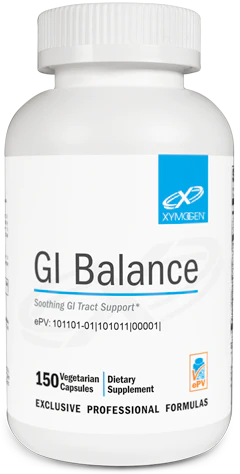
A fundamental part of your health is the state of your immune system. A healthy immune system is necessary to fight off infections from bacteria, viruses, yeasts, and fungi. A well-functioning immune system means you are less likely to get sick, and are likely to recover quickly. Some disorders of the immune system can advance to an autoimmune state, where your immune system becomes overactive and begins to attack your own body. Keeping your immune system healthy requires you to avoid chronic states of inflammation, which are more likely to trigger the immune system to overreact.
How can you avoid chronic inflammation? For many people, chronic inflammation begins in the gut. Because we eat the wrong things; like too little fiber, too much fat or protein, foods we are allergic or sensitive to or consume alcohol or caffeine, or products containing nicotine, we are likely to irritate the gut and unbalance our microbiome. Think of the gut as an ecosystem that requires certain conditions to operate efficiently and most beneficially. Too many toxins, or other stressors added to that environment causes it to weaken or even fail, just like an external ecosystem. This internal microbiome has evolved symbiotically with humans. There is a vast population of beneficial bacteria and other organisms that live in our gut, helping us break down foods and extract their nutrients, keeping the intestinal walls in good repair, and breaking down toxins and waste products to be eliminated by the body. There is a population of much less helpful bacteria as well, even ones that are dangerous, but these are generally kept in check- unless something goes wrong with the microbiome.
When a healthy microbiome alters, the population of beneficial bacteria plummets and the bad stuff can take over. When that happens, all kinds of not-so-good effects can follow. To start with, your gut starts processing foods less efficiently. Your absorption of proteins, beneficial fats, and vitamins and minerals can be impaired. Your elimination of waste products can be impaired, which allows toxins to build up and puts a strain on the liver and kidneys. The mucosa of your intestinal wall begins to thin, and the wall itself can become damaged and inflamed. This inflammation can cause cramping, loose stools, and general discomfort. As the inflammation persists, it can damage the tight cell junctions of the intestines, allowing bacteria into the bloodstream and causing inflammation elsewhere in the body that becomes chronic. This can cause symptoms ranging from achiness, being overly tired, brain fog, memory issues, lack of motivation, and feeling like you have no energy to accomplish much of anything. It also sets you up for becoming more vulnerable to infection, and therefore prone to being sick more often, or more severely.
Not only is this a poor state of affairs to find yourself in, but it sets you up for a cycle of worsening health if you end up treating frequent infections with frequent antibiotic use. Sometimes antibiotics are necessary. There are serious infections that are life-threatening that absolutely call for a course of antibiotics. Unfortunately, antibiotics are also often over-prescribed (sometimes because of patient demand), or even misprescribed- an antibiotic given for an infection that is likely viral or fungal, or a class of antibiotic that is too strong or not indicated for the type of infection that presents. This is deeply unfortunate for a number of reasons. To start with, if you take the wrong antibiotic, or take one when it isn’t needed, or even take them too often, you allow bacteria to potentially become resistant. According to a survey by the Kaiser Family Foundation, nearly half of adults (45%) say they have personally not taken their antibiotics as prescribed by a doctor. This is one of the leading causes of antibiotic resistance. Antibiotic resistance means that the bacteria is not eliminated entirely and that surviving bacteria have evolved a resistance to that specific or class of antibiotic, which means that a stronger antibiotic will likely be needed in the future to combat that strain of bacteria. Not only that, some bacterial strains are evolving resistance so that NO antibiotic will work against them. This means that if you are unlucky enough to catch one of those strains, you may very well end up dead. Another reason to consider limiting your antibiotic use when possible (and ALWAYS take them correctly) is because of the devastating effect that antibiotics can have on your microbiome.
When you take an antibiotic to kill the bacteria that are at the root of an infection, that’s not the only bacteria it kills. It also kills the useful bacteria in your gut that populates your microbiome. The bacteria that has evolved, and that your body depends on, to make sure your gut (and therefore your immune system) functions smoothly. One course of antibiotics can be like a bomb going off in the microbiome. The percentage of beneficial bacteria in the gut that is killed by one course of antibiotics can vary depending on the type of antibiotic used. For example, researchers found that tetracyclines and macrolides not only stopped good bacteria from growing, but they lead to the death of about half of the strains of microbes found in the gut that the researchers tested for. It’s important to note that even a short course of antibiotics can alter the makeup of the bacterial species in the gut. These community changes can be profound, with some people’s microbiomes taxonomically resembling those of critically ill ICU patients after taking the drugs. It can take months or even years to recover the original species' composition.
It used to be that conventional doctors ignored this effect, but now, even somewhat conservative doctors recommend taking a probiotic along with an antibiotic. Indeed, it’s about time! The functional and integrative medical community has been arguing this for decades! In fact, we’ve written recently about how important prebiotics, probiotics, and postbiotics are for rebuilding the microbiome.
Rebuilding your microbiome through the use of pre, pro, and post-biotic supplements is essential with any antibiotic use, but also for those with any sort of gut issues or chronic inflammation. Limiting or replacing antibiotic use, where possible, is also a good strategy. We’ve written about some natural alternatives to antibiotics as well. Beyond those two strategies, you should also assess your food allergies and sensitivities. Food allergies and sensitivities can cause chronic inflammation and can damage the microbiome in addition to making you feel terrible. Progressive Medical Center offers the gold standard of functional testing for food allergies in the P88-DIY test. Having this test done might be a very good idea if you have any of the symptoms of food sensitivities or have any gut issues.
What else can you do? If you’ve taken antibiotics, are rebuilding your microbiome, have gut issues, or just want to maintain a healthy gut ecosystem, consider supporting your overall gut health and helping to maintain the health of your mucosal lining in the gut by supplementing with some other natural botanicals. According to the National Institutes of Health (NIH), the inner bark of slippery elm contains chemicals that can increase mucous secretion, which might be helpful for stomach and intestinal problems. Another botanical that can help support the gut is Aloe Vera. According to the National Center for Complementary and Integrative Health (NCCIH), part of the National Institutes of Health (NIH), oral use of aloe vera is promoted for inflammatory bowel disease (a group of conditions caused by gut inflammation that includes Crohn’s disease and ulcerative colitis). Marshmallow root has been found to support gut lining integrity, acting as a protective coating to soothe the gut, allowing nutrients to pass while keeping environmental toxins out . Its components, including vitamins and antioxidants, which prevent cell damage, and plant compounds like tannins, promote a healthy mucosal lining within the digestive tract.
Sometimes one of the problems with gut dysbiosis is constipation. One natural substance that has been studied for help with this, especially as a chronic condition, is green kiwifruit. Green kiwifruit has been shown to increase water retention in the small bowel and ascending colon, and to increase colonic volume, which could help soften stools and speed their transit in the gut. This has led to the inclusion of kiwifruit in several trials assessing its effects in adults with constipation. Kiwifruit may also have a prebiotic effect; kiwifruit powder supplementation for 4 weeks led to a substantial increase in Faecalibacterium prausnitzii abundance in people with constipation. The enrichment of this butyrate-producing microorganism with anti-inflammatory properties may be an important additional mechanism underlying the effects of kiwifruit on the gut. Prunes are also well known to have a laxative effect and may be helpful to get the stool moving.
In the case of ulcers, or upset to the stomach, as opposed to the intestines, much study has been done on licorice root: Licorice root can provide several health benefits for gut health. It has been found to prevent and treat ulcers by increasing mucus production in the stomach, soothing the stomach lining, and increasing the blood supply to the stomach. Licorice root is both an anti-inflammatory agent and a demulcent, that is an emollient that provides relief and protection to irritated or inflamed internal tissue. Licorice root extract can speed the repair of the stomach lining and restore balance in cases of food poisoning, stomach ulcers, and heartburn due to the anti-inflammatory and immune-boosting properties of glycyrrhizic acid.
Aside from probiotics, there are some botanicals that research has been done on to investigate their effects on both maintenance of the microbiome and repairing the tight junctions of the intestines. One promising natural substance is quercetin: Research has demonstrated that quercetin can mediate gut activities by combating disruptions to intestinal integrity and alterations to the gut microbiota. In mice, quercetin supplementation significantly improved the diversity of the gut bacterial community and intestinal barrier function. Quercetin’s ability to curb inflammation, inhibit future inflammation, and prompt the gut to start repairs make it a formidable therapy for leaky gut. Chamomile can also help soothe the gut and repair the mucosal lining: Chamomile is promoted for gastrointestinal conditions such as upset stomach, gas, and diarrhea. One of the ways chamomile helps these issues is by relieving inflamed or irritated mucous membranes that line your digestive tract. Chamomile can also help treat digestive issues, such as irritable bowel syndrome, diarrhea, and colic.
Whew! That’s a lot of supplements that you could take in an effort to improve your gut health! Something that can help you stay on track and not be overwhelmed with pill fatigue is to find a product that combines a number of botanicals in one pill or a scoop of powder to make it much easier to still take your daily regimen. One such product that you could consider is GI Balance in pill form, or as a powder to stir into a smoothie. GI Balance contains all of the botanicals listed above: slippery elm, aloe vera, green kiwifruit, marshmallow root, licorice extract, quercetin, prune, chamomile, and other botanicals, making it very convenient! Support your gut and your microbiome to help curb inflammation in a gentle way.
- Robert Thomas

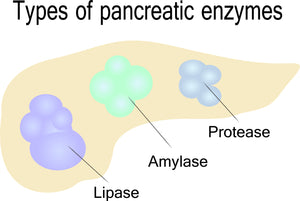

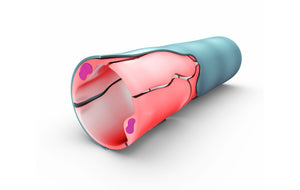
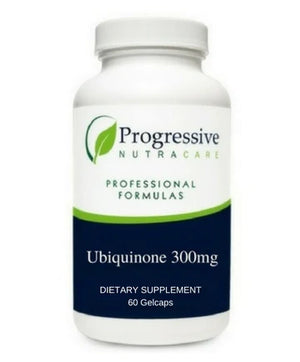
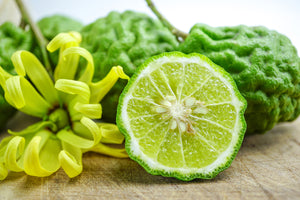
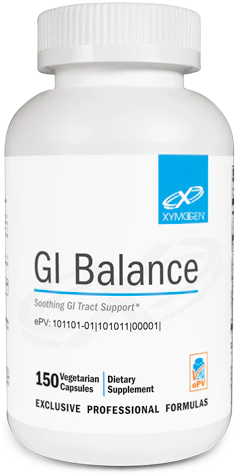
Comments 0